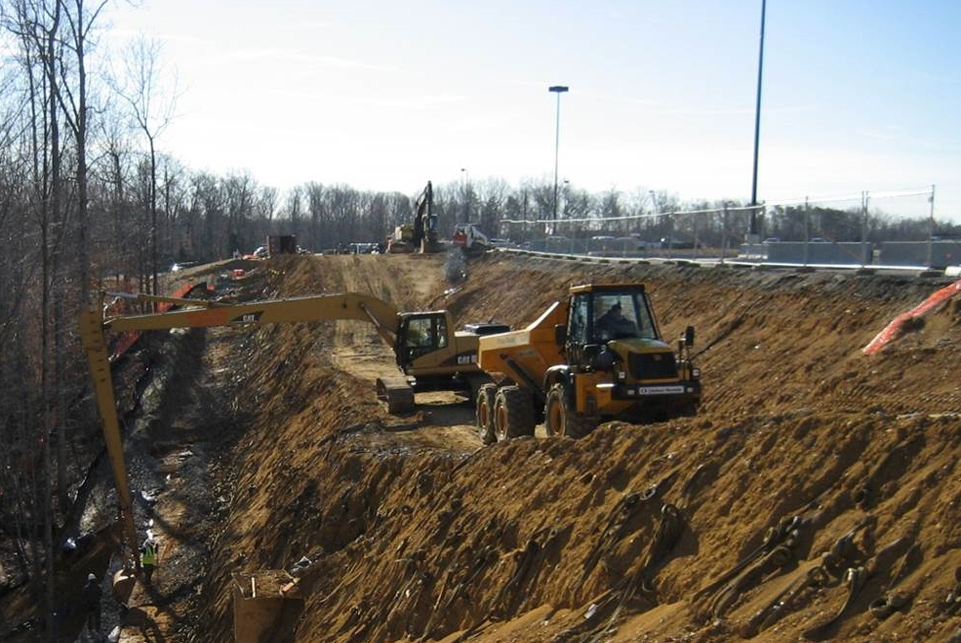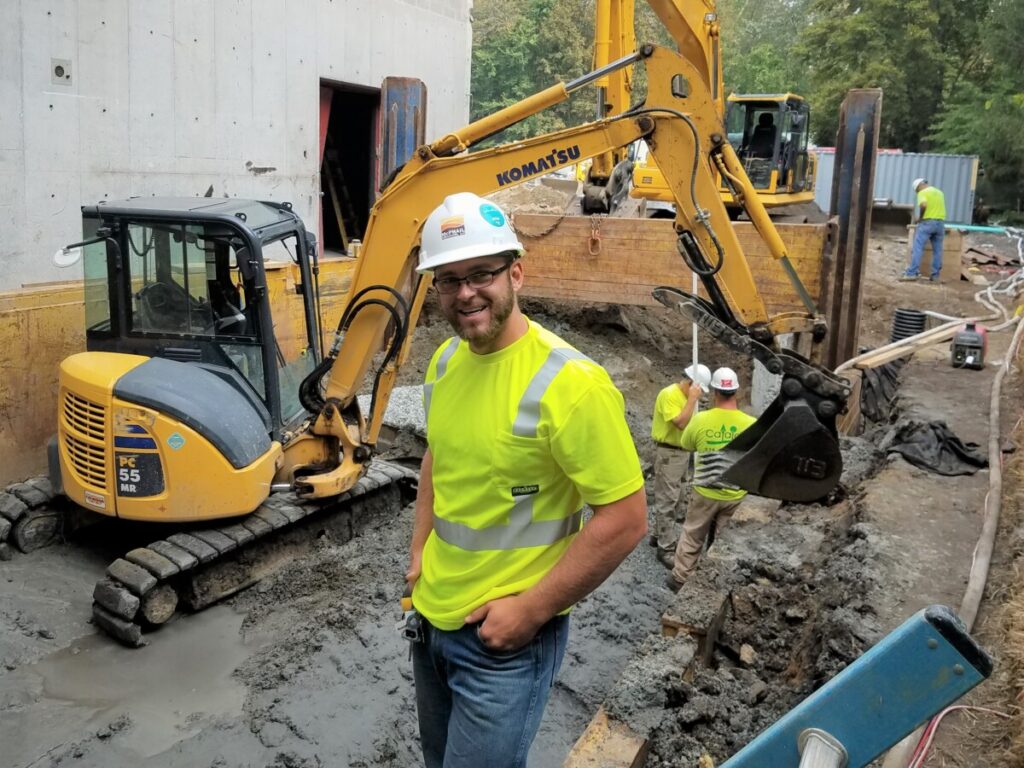Essential Abilities for Prospering in the Geotechnical Industry Today
Essential Abilities for Prospering in the Geotechnical Industry Today
Blog Article
An In-depth Review of the Key Obligations of Geotechnical Designers in Website Characterization and Ground Renovation Techniques for Engineering Solutions
Geotechnical designers are important to the effective implementation of design tasks, entrusted with the essential duties of website characterization and the application of ground enhancement methods. Their work involves a comprehensive analysis of subsurface conditions, employing various screening methods to determine soil and rock properties.
Duty of Geotechnical Engineers
Geotechnical designers play a critical duty in the style and construction of facilities by evaluating the behavior of dirt and rock below the surface - civil consulting engineers. Their responsibilities incorporate reviewing subsurface problems to educate design choices that guarantee architectural stability and safety and security. By conducting thorough analyses of soil residential properties, including shear compressibility, leaks in the structure, and toughness, geotechnical engineers supply essential data that affects the option of suitable building and construction materials and methods
Along with analyzing soil auto mechanics, geotechnical designers are entrusted with identifying possible risks such as landslides, sinkholes, and ground negotiations. Their competence assists alleviate threats related to these geotechnical phenomena, thus protecting both the atmosphere and public security. They likewise work together carefully with various other design disciplines, making sure that geotechnical factors to consider are integrated into total job style.
Furthermore, geotechnical engineers engage in the analysis of existing frameworks, providing recommendations for retrofitting and repair work when required. Their extensive understanding of soil-structure interaction is vital for the advancement of lasting framework remedies. On the whole, the duty of geotechnical designers is indispensable to the successful realization of construction projects, ensuring they are safe, resilient, and compliant with regulative criteria.

Website Characterization Procedures
Effective site characterization procedures are necessary for comprehending the subsurface conditions that influence job style and execution. Geotechnical engineers use an organized strategy to gather, review, and translate information regarding dirt, rock, and groundwater characteristics. This process begins with a detailed review of existing literature and historic website data, supplying insights right into previous site problems and possible difficulties.

Information evaluation follows fieldwork, where designers make use of geostatistical techniques to translate searchings for and produce geological designs. Via persistent site characterization, geotechnical engineers lay the groundwork for successful project implementation, minimizing unforeseen difficulties and maximizing source appropriation.
Dirt and Rock Screening Methods
While recognizing subsurface conditions is critical, the option of proper soil and rock testing methods is similarly essential for exact analysis and layout. Geotechnical designers utilize a selection of screening methods to assess the mechanical and physical properties of dirt and rock products.
Research laboratory tests, such as Atterberg limits, grain size analysis, and unconfined compressive strength examinations, provide essential data on dirt behavior under various moisture problems and filling circumstances. These tests assist establish soil classification and predict negotiation or shear toughness features essential for foundation layout.
In-situ screening techniques, consisting of Requirement Penetration Tests (SPT), Cone Infiltration Examinations (CPT), and pressure meter tests, enable engineers to gather information directly from the ground. These approaches offer important insights into the dirt's density, uniformity, and stratification without the requirement for substantial tasting.
Rock testing normally includes core tasting and research laboratory evaluation to evaluate buildings like uniaxial compressive stamina and rock high quality classification (RQD) Together, these soil and rock testing approaches enable geotechnical designers to make informed choices concerning site-specific obstacles, guaranteeing the safety and security and stability of design solutions.
Ground Enhancement Strategies
Ground enhancement techniques are crucial for improving the design homes of dirt, thus boosting its load-bearing ability and minimizing negotiation. These methods are critical in attending to obstacles provided by problematic or weak soils, which can substantially impact the security and resilience of structures.
Different ground renovation methods are used, consisting of compaction, grouting, and soil stablizing. Grouting, on the other hand, includes infusing a liquid product into the ground to fill gaps and boost soil cohesion.
Soil stablizing encompasses a variety of methods, from chemical additives to mechanical therapies, intended at boosting the dirt's resistance to disintegration and deformation. Techniques such as lime stabilization or concrete blending change the residential properties of the soil at a bit level, enhancing its total efficiency.
Value of Geotechnical Evaluations
Geotechnical evaluations play an important duty in the preparation and design of design projects, as they give necessary information concerning the subsurface conditions. Recognizing soil residential properties, rock formations, groundwater degrees, and potential geohazards is crucial for guaranteeing the security and security of frameworks. These evaluations make it possible for engineers to make enlightened decisions pertaining to site choice, design specifications, and construction methods.
The significance of geotechnical analyses prolongs past initial job phases; they contribute in threat monitoring and cost effectiveness. By identifying prospective concerns early, such as dirt settlement, incline instability, or too much groundwater, engineers can create appropriate mitigation methods, reducing the possibility of architectural failures and expensive hold-ups. These evaluations support compliance with regulative needs and boost the sustainability of design techniques.

Conclusion
To conclude, geotechnical engineers are essential to guaranteeing the safety and security and stability of engineering tasks through thorough site characterization and ground enhancement strategies. geo tech engineering. Their systematic technique to analyzing subsurface conditions, integrated with their referrals for effective ground adjustment, dramatically enhances soil properties and load-bearing capability. The experience of geotechnical engineers not only promotes enlightened project planning however additionally ensures compliance with laws and promotes reliable communication amongst stakeholders, inevitably adding to successful engineering results
Geotechnical engineers play an essential duty in the layout and construction of infrastructure by assessing the habits of soil and rock underneath the surface area. By carrying out thorough evaluations of dirt properties, including shear toughness, compressibility, and permeability, geotechnical designers supply crucial data that influences the option of ideal construction products and strategies.
In enhancement to assessing dirt auto mechanics, geotechnical engineers are tasked with recognizing possible risks such as landslides, sinkholes, and ground settlements. Geotechnical engineers employ a systematic strategy to collect, assess, and interpret information relating to groundwater, rock, and dirt attributes. By recognizing possible problems early, such as soil negotiation, incline instability, or extreme groundwater, engineers can design proper mitigation strategies, lowering the probability of expensive delays and architectural failures.
Report this page